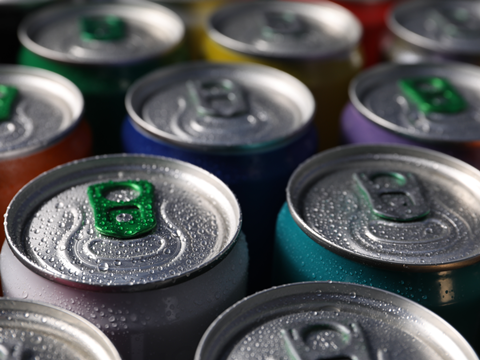
UNESDA Soft Drinks Europe and Pilario have tailored an online life cycle assessment (LCA) tool to the soft drinks industry, allowing users to evaluate their products’ environmental impacts against industry standards and report their results.
Soft drinks companies can reportedly use the tool to measure, compare, and improve the environmental footprint of their products; the evaluation covers the ingredients sourced, the packaging used, and the subsequent transport and distribution methods.
The results can be used in sustainability reporting, UNESDA suggests, and to assess each product’s performance against industry standards.
Key elements of UNESDA and Mérieux NutriSciences | Blonk’s “shadow” soft drinks Product Environmental Footprint Category Rules (PEFCR) have been integrated into the tool. PEFCR is designed to encompass ‘all the necessary’ guidance and methodology to gauge the life cycle and environmental footprint of soft drinks, and to provide harmonized methodologies between companies and countries.
The rules were intentionally developed to align with the European Commission’s generic PEFCR, especially where packaged water and beer are concerned; they seek to “shadow” the existing guidelines to create a unified methodology as a ‘foundation’ if and when an official PEFCR is developed for soft drinks.
Nicholas Hodac, director general of UNESDA, commented: “We are excited to have the first LCA tool tailored specifically for our sector, thanks to our great collaboration with Pilario and Mérieux NutriSciences | Blonk. We can now use a practical and user-friendly LCA solution to step up our environmental efforts.
“This tool is an important service UNESDA offers to its members to help them drive their transition toward packaging sustainability, reinforcing our sector’s ongoing commitment to reducing the environmental footprint of our packaging.’’
“Pilario is pleased to have provided the soft drinks sector with an innovative LCA tool that members can use for eco-design and sustainability reporting,” continued Alycia Purcell, CEO of Pilario. “Using a software reduces costs and allows scalability across sustainability operations and reporting.
“Our clients see considerable cost reductions for consultants, and a decrease in the time spent measuring and improving their product’s impact. We are happy to bring this innovation to the soft drinks sector and see progress in the industry toward environmentally friendly practices.”
Elisabeth Keijzer, senior consultant and project manager at Mérieux NutriSciences | Blonk, added: “Mérieux NutriSciences | Blonk is thrilled to have co-developed a “shadow’’ soft drinks Product Environmental Footprint Category Rules (PEFCR) with the soft drinks sector.
“This PEFCR is essential for offering soft drinks companies a clear, harmonised methodology to assess the environmental impact of their products, ensuring that LCA results are reliable and comparable.”
In a previous edition of the Spotlight, LCA consultancy Lifecycles walked us through its PIQET 5.0 update. This newest version includes ISO 14044-compliant reporting, a packaging footprint page, and other features designed to help customers optimize their designs for both environmental impact and efficiency.
UPM Raflatac’s Label Life LCA calculation engine also received a certificate of validity from DEKRA. This was expected to verify its life cycle assessment process and reassure customers of its reliability.
If you liked this story, you might also enjoy:
The ultimate guide to the Packaging and Packaging Waste Regulation in 2025
How are the top brands progressing on packaging sustainability?
Everything you need to know about global packaging sustainability regulation in 2025
The key to increasing the use of reusable packaging in supermarkets














No comments yet